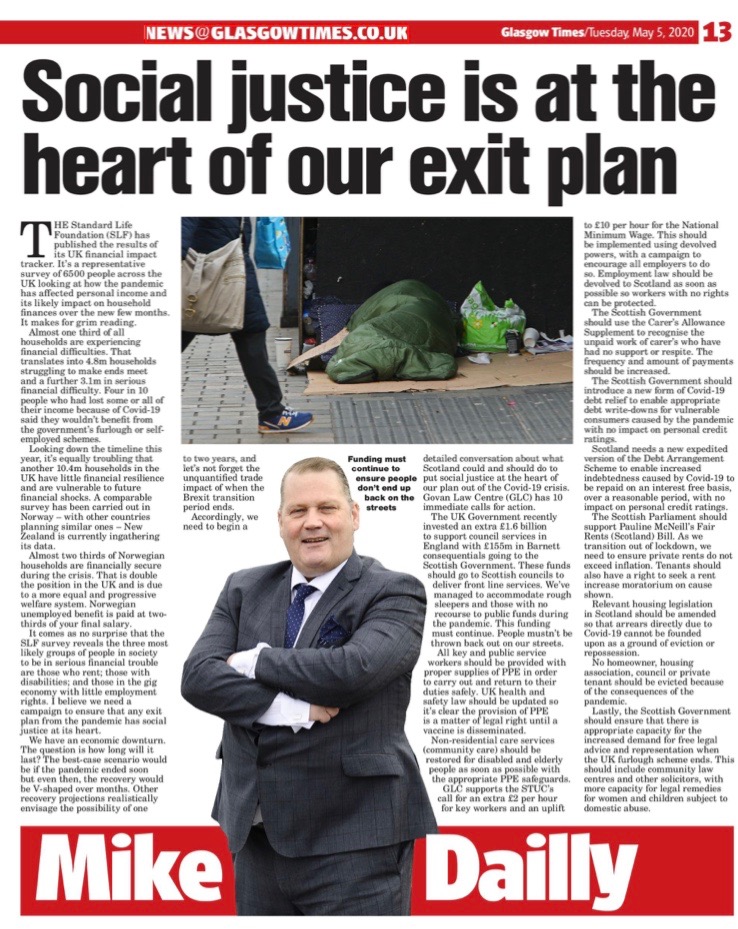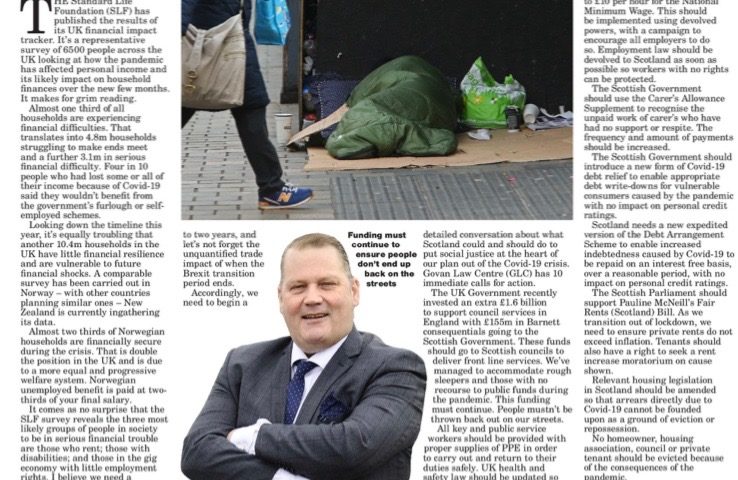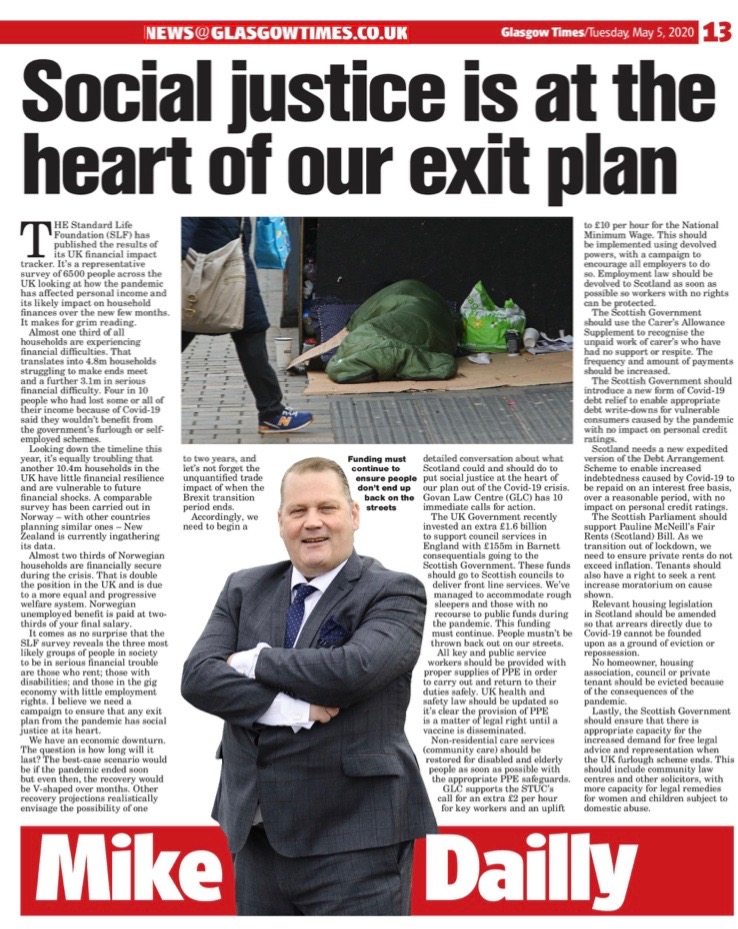One third of households are experiencing financial difficulties. Four in ten people who had lost some or all of their income because of Covid-19 said they wouldn’t benefit from the government’s furlough or self-employed schemes. 10.4m households in the UK have little financial resilience and are vulnerable to future financial shocks.
GLC are inundated with calls for their services. The three most likely groups of people to be in serious financial trouble are those who rent; those with disabilities; and those in the gig economy with little employment rights.
We need a detailed conversation about what Scotland must do to put social justice at the heart of our plan out of the Covid-19 crisis. GLC has started our campaign to put social justice at the heart of Scotland’s exit plan.
To start the campaign Govan Law Centre (GLC) has 10 immediate calls for action.
1. Properly fund local government in Scotland
The UK Government recently invested an extra £1.6 billion to support council services in England with £155m in Barnett consequentials going to the Scottish Government. These funds should go to Scottish councils to deliver front line services.
2. End Rough Sleeping
We managed to accommodate rough sleepers and those with no recourse to public funds during the pandemic and this funding must continue. People mustn’t be thrown back out on the streets.
3. Protect Key Workers
All key and public service workers should be provided with proper supplies of PPE in order to carry out and return to their duties safely. UK health and safety law should be updated to make the provision of PPE a matter of legal right until a vaccine is disseminated.
4. Restore community care services
Non-residential care services (community care) should be restored for disabled and elderly people as soon as possible with the appropriate PPE safeguards.
5. Pay increase for key workers
GLC supports the STUC’s call for an extra £2 per hour for key workers and an uplift to £10 per hour for the National Minimum Wage. This should be implemented using devolved powers, with a campaign to encourage all employers to do so. Employment law should be devolved to Scotland as soon as possible so workers with no rights can be protected.
6. Recognise the unpaid work of carer’s
The Scottish Government should use the Carer’s Allowance Supplement to recognise the unpaid work of carer’s who have had no support or respite. The frequency and amount of payments should be increased.
7. New Debt Relief in Scotland
The Scottish Government should introduce a new form of Covid-19 debt relief to enable appropriate debt write-downs for vulnerable consumers caused by the pandemic with no impact on personal credit ratings.
Scotland needs a new expedited version of the Debt Arrangement Scheme to enable increased indebtedness caused by Covid-19 to be repaid on an interest free basis, over a reasonable period, with no impact on personal credit ratings.
8. Protect tenants
The Scottish Parliament should support Pauline McNeill’s Fair Rents (Scotland) Bill. As we transition out of lockdown, we need to ensure private rents do not exceed inflation. Tenants should also have a right to seek a rent increase moratorium on cause shown.
Relevant housing legislation in Scotland should be amended so that arrears directly due to Covid-19 cannot be founded upon as a ground of eviction or repossession. No homeowner, housing association, council or private tenant should be evicted because of the consequences of the pandemic.
9. Protect women and children from domestic abuse
Scottish Government should ensure that there are enough services and more capacity for legal remedies for women and children subject to domestic abuse.
10. Expand law centres
The Scottish Government should ensure that there is appropriate capacity for the increased demand for free legal advice and representation when the UK furlough scheme ends. This must include expanding community law centres provision across Scotland.
All statistics in this post are from The Standard Life Foundation (SLF) of its UK financial impact tracker. It’s a representative survey of 6,500 people across the UK looks at how the pandemic has affected personal income and its likely impact on household finances over the new few months.


